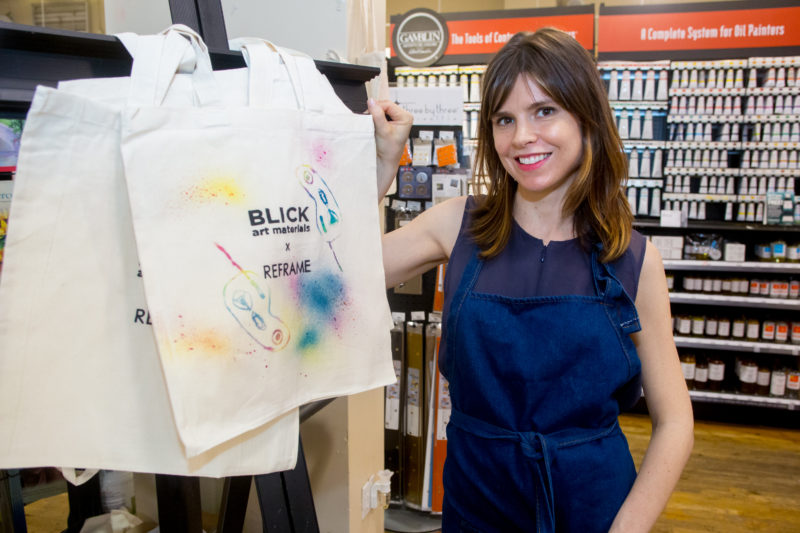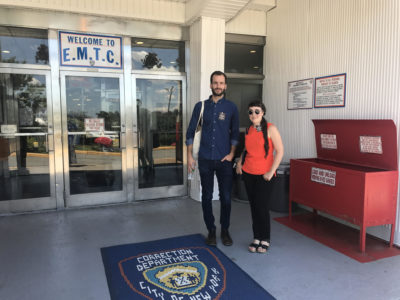
In June, Lydia Barry Kutko, Art Market MA ’09, held an event at Blick Art Materials on Bond Street in Manhattan to raise awareness for Reframe, her adult education program for inmates on Rikers Island. Store visitors decorated muslin tote bags printed with the Reframe logo. Some participants also screen-printed onto the bags a work of art designed collectively by Kutko’s first class of inmates.
The eight-week program, which she says is the first of its kind, is a series of classes designed for prisoners with sentences of a year or less. She teaches them about art jobs—careers that range from fine artist to art handler to installer for galleries. Artists Melissa Brown and Josh Reames and two producers of the nonprofit art education organization Art21 (which has a show on PBS) came to Rikers to talk with Reframe attendees about contemporary art history and the therapeutic power of the creative process.

The owner of an art consultancy in Manhattan, Kutko began seeking opportunities to engage in social justice work a few years ago. “My business was placing blue-chip art with high-end collectors, but I wanted to do something to contribute to society,” she says. To better qualify for a contract with the New York City Department of Correction (DOC), she earned a certification through the Minority and Women-Owned Business Enterprise Program. The city granted the contract in spring 2017.
James Walsh, deputy commissioner for adult programming and community partnerships with the DOC, says he liked Kutko’s proposal because it was different from most of the Rikers programming. “In our search for program partners,” he says, “we look for a wide range and type of program offerings to cater to the diverse population and their interests. Additionally it was a chance to introduce the men to an employment sector that is not very well known and in which many may have an interest.” He considered the curriculum successful: “There was much interest and enthusiasm from the men in the class, with a number saying we should do more programming like that.”
Natasha Degen, chair of the FIT program now called Art Market Studies, says, “The art world has a reputation for being exclusive—with its aloof airs, pristine spaces, and eye-watering prices—even if art itself can act as a universal language. Lydia has responded to the deep, endemic problems in our criminal justice system by leveraging her background and network to introduce inmates to contemporary art and to job opportunities in art handling, framing, and shipping. It’s an unusual path for a graduate of our program but one in line with our mission: to serve as an agent of diversity in a field that is often regarded as impenetrable and elite.”
This fall, Kutko will develop the Rikers program further with a new class that she hopes will include women. The curriculum has also shifted slightly, she says. “The success of the program has prompted my developing this into a full-fledged art handling training and job placement program. I’m currently working on the curriculum with a master handler.”
